 Petzlover
Petzlover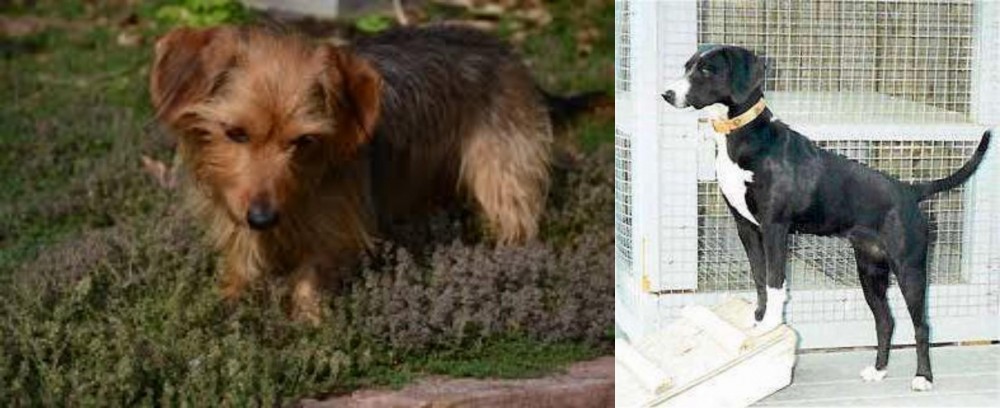 Both Dorkie and Stephens Stock are originated from United States. Dorkie may grow 27 cm / 10 inches shorter than Stephens Stock. Dorkie may weigh 52 kg / 114 pounds lesser than Stephens Stock. Both Dorkie and Stephens Stock has almost same life span. Both Dorkie and Stephens Stock has almost same litter size. Both Dorkie and Stephens Stock requires Low Maintenance.
Both Dorkie and Stephens Stock are originated from United States. Dorkie may grow 27 cm / 10 inches shorter than Stephens Stock. Dorkie may weigh 52 kg / 114 pounds lesser than Stephens Stock. Both Dorkie and Stephens Stock has almost same life span. Both Dorkie and Stephens Stock has almost same litter size. Both Dorkie and Stephens Stock requires Low Maintenance.
 Dorkie Terriers originate from the United States of America. The small Dorkie, a cross between the Dachshund and the Yorkshire Terrier has a short history, unlike the two dog breeds that were bred to bring him about.
Dorkie Terriers originate from the United States of America. The small Dorkie, a cross between the Dachshund and the Yorkshire Terrier has a short history, unlike the two dog breeds that were bred to bring him about.
These dog breeds were both used for hunting small animals but the Dorkie today is essentially a companion dog. The International Designer Canine Association started recording registration of the Dorkie from 2009.
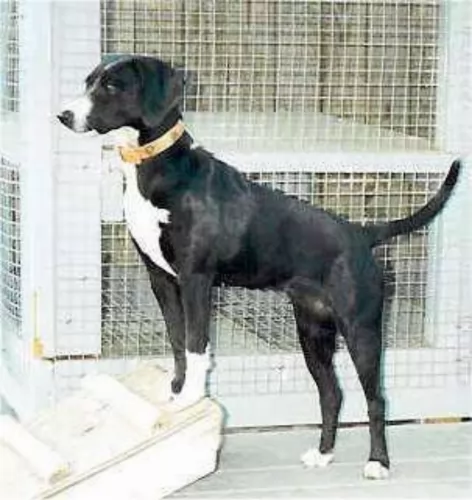 The Stephens Stock is a member if the Cur dog breeds. They are a scent hound bred in southeastern Kentucky by the Stephen’s family. For generations the dogs were simply known as the “little black dog”. The Cur breeds are dogs with a mixture of ancestry and the Stephens Cur is no different. However, the name Cur now means a working dog from the South in the United States. They were known as hunting and guard dogs, chasing wild boar, squirrel and raccoon. They were also called the Mountain Curs throughout Kentucky, Tennessee and Virginia.
The Stephens Stock is a member if the Cur dog breeds. They are a scent hound bred in southeastern Kentucky by the Stephen’s family. For generations the dogs were simply known as the “little black dog”. The Cur breeds are dogs with a mixture of ancestry and the Stephens Cur is no different. However, the name Cur now means a working dog from the South in the United States. They were known as hunting and guard dogs, chasing wild boar, squirrel and raccoon. They were also called the Mountain Curs throughout Kentucky, Tennessee and Virginia.
These mountain working dogs came close to extinction by the 1940’s but four separate breeders set out to save the Mountain Curs. They were the founders of the Mountain Cur Club and involved Woody Huntsman of Kentucky, Carl McConnel of Virginia, Dewey Ledbetter of Virginia and of course Hugh Stephens of Kentucky. Later the name of the club was changed to the Original Mountain Cur Breeders Association or OMCBA. The Mountain View Cur, the Treeing Cur and the Stephens Stock Cur were the results of their efforts.
In the 1970’s Stephen’s decided that his Cur was different from the original Mountain Curs and should be a separate breed. He formed the Stephen’s Breeders Association and the breed was recognized as distinct from other Curs. However, it was not recognized by the UKC (United Kennel Club) until 1998.
 The Dorkie is a small hybrid breed standing at 13 – 23cm in height and weighing 2 – 6kg. The Dorkie mostly comes with long, straight hair but there are however Dorkies who have the short hair of the Dachshund.
The Dorkie is a small hybrid breed standing at 13 – 23cm in height and weighing 2 – 6kg. The Dorkie mostly comes with long, straight hair but there are however Dorkies who have the short hair of the Dachshund.
The Dorkie is hypoallergenic, making them the ideal pet for allergy sufferers. They have floppy ears, a long body and short legs. The tail is long and furry. Most times they come in the Yorkshire Terrier colors of black and tan, but this can also vary.
The Dorkie is a loving, loyal, happy little dog who makes an excellent family dog. Although he isn’t looked upon as your typical lap dog, it is what he is really, as he loves nothing more than to be curling up on your lap or as close to you as he can get.
He loves spending time with his human family and is a social, extrovert kind of dog. Because he is also alert, he will do a good job of alerting his family to danger. He is good with children, but because of his smallness, rough children will need to be careful in rough and tumble games as he could get injured.
Even with a small dog like this, he will need training and socialization otherwise he can become a yapper, which comes from the Dachshund side. Training makes him obedient and relaxed around visitors in the home, and because he is an intelligent breed, he is easy to train and is a great dog for first time dog owners.
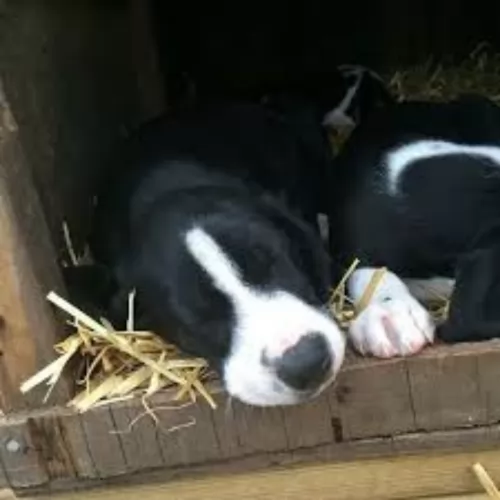 The Stephens Stock Cur is a breed of medium size, dark dogs – either very dark grey or black. Their heads are domed, and the muzzle is short with dark eyes. The breed’s chest is broad and deep with a neck of medium length and either a rough or smooth coat. They are smaller than the other Curs like the Black Mouth Cur or the Mountain View Cur.
The Stephens Stock Cur is a breed of medium size, dark dogs – either very dark grey or black. Their heads are domed, and the muzzle is short with dark eyes. The breed’s chest is broad and deep with a neck of medium length and either a rough or smooth coat. They are smaller than the other Curs like the Black Mouth Cur or the Mountain View Cur.
They are strong and capable of treeing their prey. Their body is longer than it is high, and they have powerful and long legs. Their appearance is sleek and elegant. The nose is dark and square, and their stance is alert and that of a watchdog. This is an athletic hunting dog that is aggressive in the field and chilled at home.
 Dorkies are easy going little dogs and adapt easily to life in the city or in the country.
Dorkies are easy going little dogs and adapt easily to life in the city or in the country.
Ideally they are inside dogs, feeling happy and content around their human family. They love adults and children and will get on well with other pets in the home too.
They are quite active little dogs and will thrive on games inside the home or outside in the garden. He may be small, but you can put him on a leash and take him for walks.
They make excellent pets and are only too happy to become a devoted and loyal family member of yours.
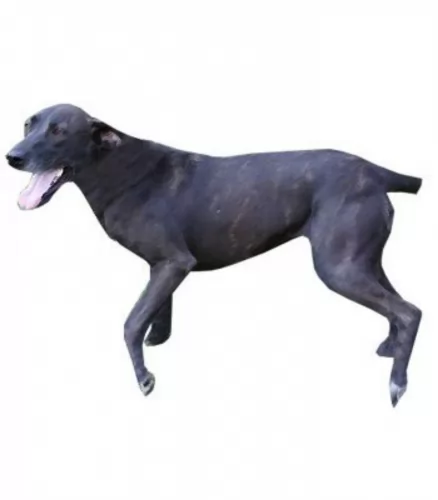 1. Children friendliness - They are tenacious on the hunt but once at home they love children.
1. Children friendliness - They are tenacious on the hunt but once at home they love children.
3.Adaptability They are adaptable if you can get them the exercise, they need every day. They won’t do well in an apartment without going to play and run somewhere else every day.
 The Dorkie, being a cross-breed, is a healthy dog and with good care can live t be 10 – 13 years of age. Nonetheless he is still prone to genetic problems and he can inherit traits from both parents.
The Dorkie, being a cross-breed, is a healthy dog and with good care can live t be 10 – 13 years of age. Nonetheless he is still prone to genetic problems and he can inherit traits from both parents.
A healthy diet will be needed to maintain the Dorkie’s health. You don’t want to overfeed your Dorkie, more so because he is a small dog.
The way you feed a dog can have a massive impact on his health and longevity. Just remember that a dog that is obese will battle to exercise, but also obesity can result in serious health problems, putting strain on the bones and joints too.
You don’t want to feed your dog day after day with kibble, and adding in some cooked rice, vegetables and chicken can just give him a more varied diet. Raw meat can also be included from time to time. Always ensure that there is fresh, cool water available to him.
The most common symptoms of an allergy is skin irritation – your pet will be constantly scratching and licking. Some skin conditions with your Dorkie can be cleared up quickly while some might be so severe as to require lifelong treatment.
 The Stephens Stock Cur is a fairly healthy breed, fairly isolated in the hills and mountains of Kentucky and Tennessee. They are prone to a few health conditions but there are no genetic and breed specific issues.
The Stephens Stock Cur is a fairly healthy breed, fairly isolated in the hills and mountains of Kentucky and Tennessee. They are prone to a few health conditions but there are no genetic and breed specific issues.
• Ear and Eye Infections. Keep them clean and keep debris out of both ears and eyes after hunting.
 What you feed your pet can play an important role in managing health and skin conditions. Speak to your vet about special quality dog foods that can help reduce skin conditions and other nasty reactions to common, unhealthy food ingredients.
What you feed your pet can play an important role in managing health and skin conditions. Speak to your vet about special quality dog foods that can help reduce skin conditions and other nasty reactions to common, unhealthy food ingredients.
Dorkies are very low maintenance dogs, and they will require a brushing every 2 weeks. Those with longer coats may require some professional grooming. Check their teeth regularly and brush them 2 or 3 times a week. The occasional nail clipping may also be required.
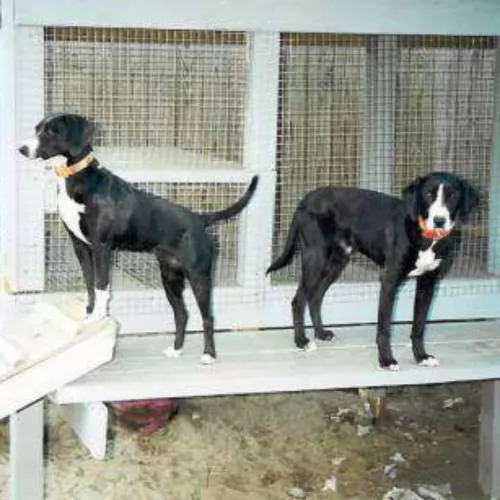 1.Feeding the puppy -Feed puppies a quality food desired for medium breed, high energy dogs. Puppies should eat 3 times a day about a total of 2 cups.
1.Feeding the puppy -Feed puppies a quality food desired for medium breed, high energy dogs. Puppies should eat 3 times a day about a total of 2 cups.
2.Feeding the adult Feed a high quality dog food with plenty of protein and designed for medium size dogs. Feed a total of 3 cups over 2 meals a day.
4. Games and Exercises – This is a very high energy treeing hunting dog with remarkable speed and agility. They need exercise – both physical and mental. One walk a day will not do it for these dogs. Have a fenced in yard or take them to organized activities like field trials, agility, flyball, hunting, search and rescue or barn hunt. They love to hunt with their people.